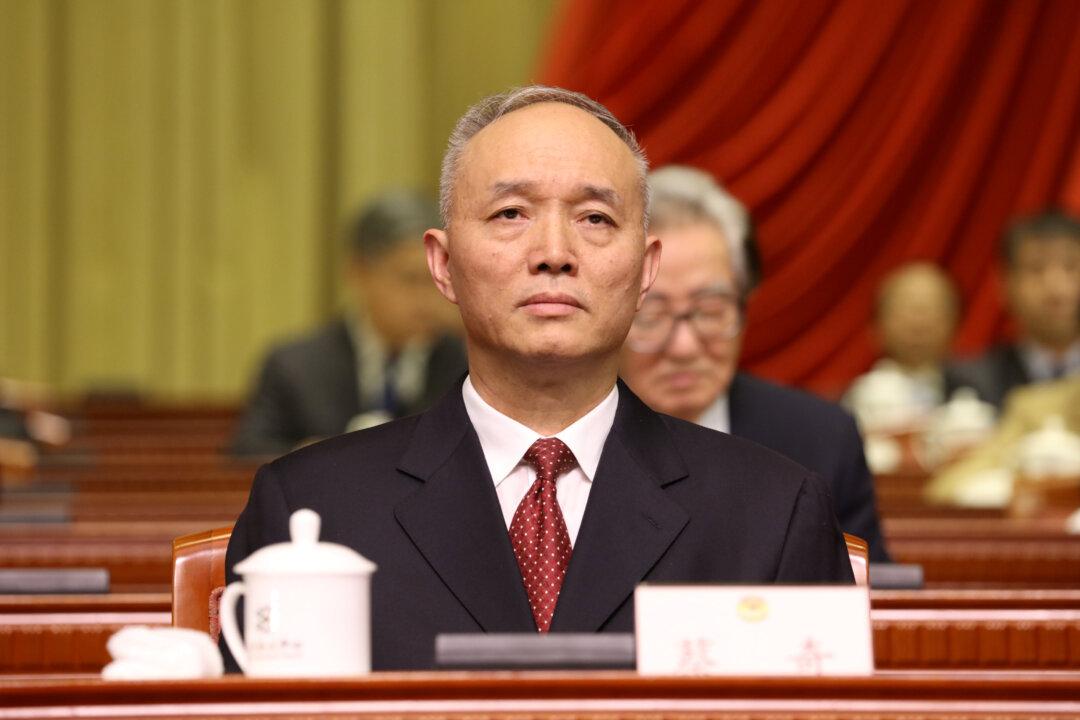Cai Qi spent 14 years in several modest official positions in the eastern Chinese province of Zhejiang. Finally, in 2013, he became a deputy to the province’s No. 2 official.
In the past four years, however, Cai has enjoyed a major career progression somewhat akin to an employee in middle management of a multinational company suddenly being made CEO—with an additional offer to join the board of directors.
Cai, 60, was first plucked from Zhejiang to be deputy director of the Chinese regime’s national security organ in 2014. Then Cai was made acting and full Beijing mayor, and later landed the top job in Beijing—Communist Party secretary of Beijing—in a span of six months in 2016 and 2017.
As Beijing boss, Cai also seems locked in for a seat in the Politburo—the elite, 25-member decision-making body—come the 19th National Congress, a key Party conclave, near the end of the year.
The Xi Jinping leadership’s recent appointment of Cai and over a dozen others to senior provincial positions has turned heads because the appointees are technically non-elites—none of the newly promoted officials are in the Central Committee, a collection of over 300 ministerial-level officials.




